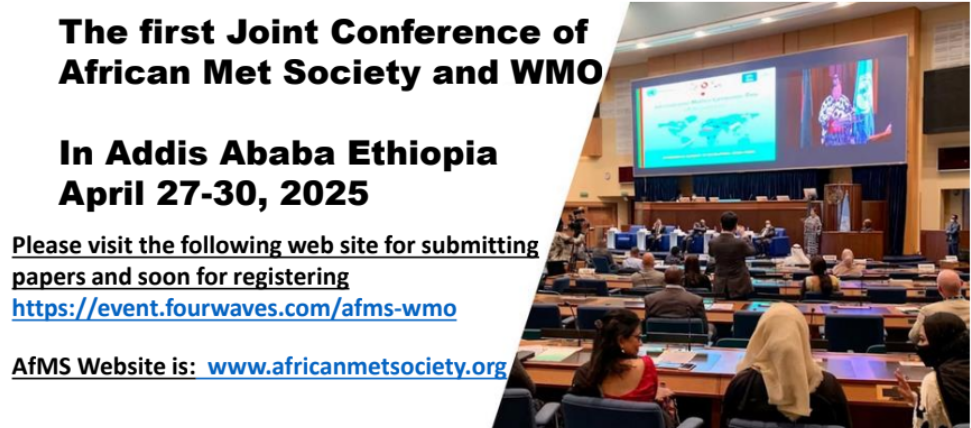Welcome to the International Forum of Meteorological Societies
Call of the Day: Let’s create AsMS (Asian Meteorological Society).
We urge Asian NMSocs to create an Asian Meteorological Society (AsMS) soon. As the African Meteorological Society is proving, the benefits of a Regional Meteorological Society are immense. As we did for the creation of AfMS, we will also help AsMS to strengthen itself.
Asia is a powerful continent with the largest population. But it also has 12 Least Developed Countries (LDCs): Afghanistan, Bangladesh, Bhutan, Cambodia, Kiribati, Lao People’s Democratic Republic, Myanmar, Nepal, Solomon Islands, Timor-Leste, Tuvalu, and Yemen. With Climate Change causing more and more disasters, IFMS believes that advanced and advancing nations must assist these countries in strengthening their capacity to handle the issues caused by Climate Change.
Many of them in South Asia are being assisted by SAMA (South Asia Meteorological Association) which holds regular Training Sessions with the help of Indian scientists and Trainers. We believe that, in addition to India, other advanced and advancing countries like Japan, China, South Korea, Singapore, etc. should also help in the efforts of SAMA by creating AsMS. With the European Meteorological Society (EMS), African Meteorological Society (AfMS), and FLISMET in South America, Asia deserves its own Regional Meteorological Society called AsMS. We urge all Asian countries to make this goal of IFMS come true. With Climate Change causing more and more disasters, capacity building through uniting all entities dealing with hydrometeorology and oceanography is our target. Let’s remember that strengthening the capacity to handle the effects of Climate Change is an apolitical effort.
|
With so many things going on including the first Joint Conference of AfMS and WMO, the following decision has been taken by the Council of IFMS: Elections for the Council of IFMS will be held in the second half of 2025. |
About the African Meteorological Society (AfMS) – Conference and Journal
News and Announcements
Building Capacity in Africa through Education and Training and Collaboration in Science and Technology. The status of the AfMS is presented on the following link:
Here is the link to get to the Status of AfMS.
To strengthen AfMS, we have set 4 important milestones:

1. Creation and upkeep of AfMS Website – done
2. Production of the first Newsletter – completed in January 2024. This Newsletter is available at the following link: https://africanmetsociety.org/news/first-newsletter-of-afms/. The second Newsletter will be issued in September 2024.
3. Production of the first Journal of AfMS – JAfMS - to be issued in the fourth quarter of 2024 or January 2025,
Here is the “Call for papers” for the AfMS Journal.
More detailed info about the Journal available here
4. Holding the first Conference of AfMS in Addis Ababa, Ethiopia - April 27 to 30, 2025.
Here is the “Call for Papers” for the AfMS-WMO Joint Conference in Addis Ababa on April 27-30, 2025.
More detailed info about the Conference is available here
IFMS redoubles its effort to create/strengthen National Meteorological Societies and Regional Meteorological Societies by holding Zoom meetings in each region.
IFMS believes that all countries – no matter how big or small - can have a National Meteorological Society (NMSoc). This has become possible due to IFMS, Regional Meteorological Societies (RMSs), and other strong NMSocs you can partner with.
The availability of tools such as WebEx, Zoom, MS Teams, Google Meet, etc. for Virtual Meetings, Conferences, and Webinars has made it possible for even the smallest countries to have an NMSoc, conduct Virtual Events and engage with other societies for creating capacity in their country.
If your country does not have an NMSoc and you are interested in creating one, please request for our help through the following link: https://forms.gle/trsTPVNqKvKwRW7T9
Your NMSoc will become your door to the Global Weather Enterprise. Please see the related documents on this link.
We urge all existing NMSocs, not yet members of the IFMS, to become members to be involved in international activities.
About IFMS
The International Forum of Meteorological Societies (IFMS) is an organization to foster and encourage communication and exchange of knowledge, ideas and resources among the world’s more than sixty meteorological societies.
The IFMS is quite distinct from the World Meteorological Organization (WMO). Whereas the WMO is an agency of the United Nations that deals with cooperation between Meteorological Services of various nations, the IFMS is meant to create cooperation between Meteorological Societies of the World. The Summary of the IFMS Value Proposition is provide in this link.
The IFMS is organized exclusively for scientific, educational and charitable purposes, including, but not limited to:
- Foster, promote, and encourage cooperation, communication, collaboration, and exchange of knowledge, ideas and resources among the Meteorological Societies of the world.
- Advance the science and profession of meteorology and related sciences worldwide and to assist the development of applications of these subjects for the public welfare and benefit of the peoples of the world.
- Develop international bridges to encourage collaboration among public, private and academic sectors as a well as users.
- Assist in developing and promoting capacity building efforts that produce effective and sustainable service capabilities in developing countries.
- Assist all meteorological societies in developing best practices.
- Assist developing meteorological societies to strengthen themselves.
- Help start new meteorological societies in countries where none exists.
- Facilitate cooperation between meteorological societies worldwide.
- Facilitate the sharing of relevant accreditation information, procedures, guidelines and standards and, to do any and all things permitted for a not-for-profit corporation organized under prevailing laws in the jurisdiction where IFMS is incorporated.
- Assist National Meteorological Societies to promote collaboration among the Private/Public/University/ NGO sector social civil organizations
- Assist Private Sector companies to facilitate international outreach, specially to build infrastructure in developing countries.


